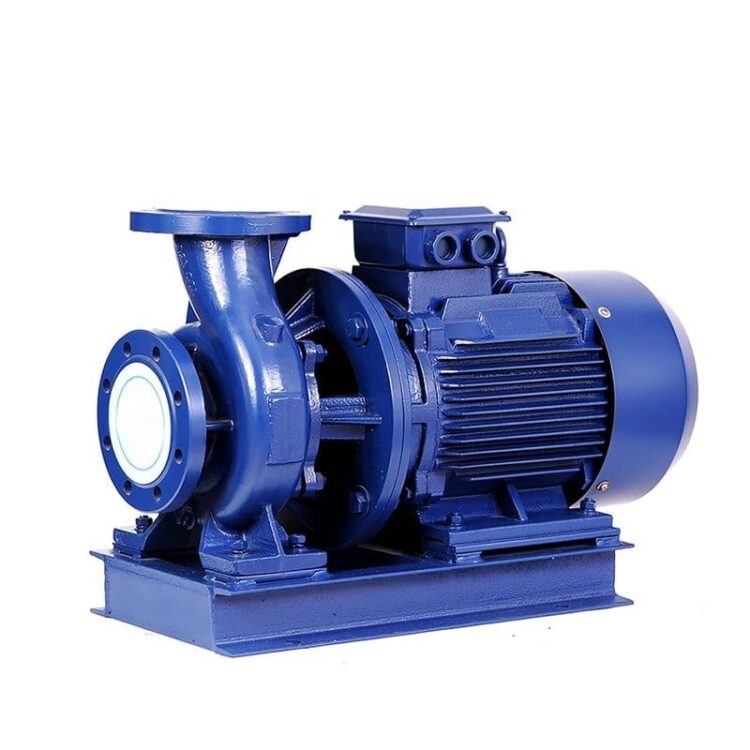Self-priming pumps play a crucial role across a wide range of industries, from water treatment and agriculture to construction and chemical processing. These pumps are designed to handle challenging conditions, such as air in the pump or intermittent liquid flow, and are capable of quickly priming themselves without needing manual intervention. This makes them indispensable in industrial applications where downtime or frequent maintenance can be costly.
Selecting the right self-priming pump manufacturer is a key factor in ensuring that your equipment operates efficiently and reliably over time. With numerous manufacturers on the market, it’s important to know what to look for when choosing the best partner for your business needs. In this guide, we’ll explore the essential factors to consider when selecting a reliable manufacturer, as well as the long-term benefits of making the right choice.
Understanding Self-Priming Pumps and Their Applications
What are Self-Priming Pumps?
A self-priming pump is designed to automatically remove air from the pump and suction line, allowing it to create the vacuum needed to begin pumping fluid. This ability makes self-priming pumps highly efficient for applications where the pump may not always be filled with liquid or where air needs to be evacuated before operation can begin.
Key Features of Self-Priming Pumps:
- Air-handling capability.
- Suction lift, enabling the pump to pull liquid from a lower level.
- Simple maintenance and operation.
Common Applications of Self-Priming Pumps
Self-priming pumps are used across a wide range of industries due to their versatility and ability to handle tough operating conditions. Some of the common applications include:
- Water and Wastewater Management: Ideal for sewage systems, stormwater management, and water treatment plants.
- Agriculture and Irrigation Systems: Used for irrigation and water distribution in agricultural settings.
- Construction and Dewatering: Employed for draining water from construction sites, basements, and other areas.
- Industrial Fluid Transfer: Utilized in chemical processing, food and beverage manufacturing, and oil transfer.
In these industries, downtime can result in significant losses. Therefore, it’s essential to get self-priming pump solutions that are not only reliable but also capable of handling diverse operating environments.
Key Factors to Consider When Choosing a Self-Priming Pump Manufacturer
Quality of Products
When selecting a manufacturer, product quality is one of the most important factors to consider. Reliable top self priming pump manufacturers ensure that their pumps are made from high-quality materials and are built to last.
- Durability and Material Quality: Leading manufacturers use materials such as stainless steel, cast iron, and high-performance plastics to ensure the pumps can withstand harsh environments and corrosive fluids.
- Performance and Reliability: Pumps from top manufacturers are designed to deliver consistent performance even in challenging conditions, ensuring they can handle everything from contaminated fluids to abrasive solids.
- Compliance with Industry Standards: Look for manufacturers that comply with international quality standards such as ISO 9001, which ensures their products meet global benchmarks for safety, performance, and reliability.
Experience and Expertise
Partnering with a manufacturer that has extensive experience in producing self-priming pumps is essential to getting the right solution for your specific needs. Experience translates into a deeper understanding of different applications and the challenges associated with them.
- Years in the Industry: Manufacturers with a proven track record bring more than just products to the table; they bring expertise that can help solve complex pumping challenges.
- Specialization in Self-Priming Pumps: Opt for manufacturers who specialize in self-priming pumps, as their focused expertise will ensure more innovative solutions and better product quality.
- Customer References and Testimonials: Always check references and reviews from other clients to gauge the manufacturer’s reputation for quality, reliability, and customer service.
Product Range and Customization Options
A reliable manufacturer should offer a wide range of self-priming pump models to meet various industrial needs. Additionally, they should provide the option to customize pumps according to your specific requirements.
- Variety of Pump Models: A good manufacturer should provide multiple options in terms of pump size, capacity, and power, catering to different applications and industry needs.
- Customization Capabilities: The ability to customize pumps based on flow rate, pressure, or resistance to specific chemicals can ensure that you get a pump that fits your precise operational demands.
- Adaptation for Various Industries: Look for manufacturers that understand the specific requirements of different industries and offer solutions tailored to those needs, whether it’s chemical processing or wastewater management.
Advanced Technology and Innovation
Use of Modern Manufacturing Techniques
Leading manufacturers utilize advanced production techniques that result in higher precision, better quality, and more reliable products.
- Precision Engineering and CNC Machining: Top manufacturers rely on high-precision manufacturing techniques such as CNC machining to ensure the consistent quality and durability of each pump.
- Automation and Smart Technologies: With the integration of smart technologies, some manufacturers now offer pumps that can be monitored remotely, providing real-time data on performance and maintenance needs, which helps prevent costly breakdowns.
Research and Development (R&D)
A manufacturer’s commitment to research and development is an important indicator of their dedication to innovation and improvement.
- Commitment to Innovation: Manufacturers that invest in R&D are more likely to produce pumps with enhanced features, such as improved energy efficiency or greater resistance to abrasive materials.
- Sustainability and Energy Efficiency: Look for manufacturers that prioritize eco-friendly designs and energy-efficient pumps, which can reduce operational costs while minimizing environmental impact.
Strong Customer Support and After-Sales Service
Technical Support and Consultation
Choosing a manufacturer that provides strong pre-purchase consultation and ongoing technical support can make all the difference when it comes to ensuring the success of your pump system.
- Pre-Purchase Consultation: A good manufacturer will help you determine the right pump for your needs, based on factors such as the type of fluid being pumped, flow rate requirements, and operational conditions.
- Troubleshooting and Installation Assistance: Reliable manufacturers provide technical support during installation and operation, ensuring smooth integration of the pump into your system.
After-Sales Support and Maintenance Services
Long-term success with a self-priming pump system depends on the availability of after-sales support and maintenance services.
- Warranty and Spare Parts Availability: Look for manufacturers that offer warranties and easy access to replacement parts, ensuring you can keep your pumps operational with minimal downtime.
- Maintenance Services: Some manufacturers offer ongoing maintenance services that include routine inspections, troubleshooting, and repairs, further extending the life of your pump system.
Training Programs
To get the most out of your self-priming pump, it’s essential that your team is properly trained on how to operate and maintain it.
- Operator Training: Leading manufacturers often provide training programs that teach operators how to properly use the pumps, which helps reduce the risk of damage and extends the equipment’s life.
- Technical Documentation and Manuals: Comprehensive user manuals and technical documentation are essential for ongoing maintenance and troubleshooting.
Cost Efficiency and Long-Term Value
Initial Investment vs. Long-Term Savings
Although the initial cost of a self-priming pump is a factor, long-term operational savings often outweigh the upfront investment.
- Cost vs. Value: High-quality pumps may come with a higher price tag, but they deliver greater value over time due to their durability, reduced maintenance requirements, and energy efficiency.
- Durability and Reduced Downtime: Pumps that are designed for long-term reliability reduce the frequency of breakdowns and repairs, minimizing downtime and the associated costs.
Energy Efficiency
Energy-efficient pumps can significantly lower operational costs, especially in applications that require continuous use, such as water treatment or irrigation.
- Operating Costs: Pumps that consume less power help reduce energy bills, making them a more cost-effective solution over time.
- Eco-Friendly Designs: Many manufacturers are now focusing on eco-friendly designs that not only reduce energy consumption but also contribute to a smaller environmental footprint.
Reputation and Global Reach
Global Presence and Clientele
Working with a manufacturer that has a strong global presence ensures that they have the resources, expertise, and infrastructure needed to meet the demands of large-scale projects.
- Manufacturers with a Strong Global Presence: A globally recognized manufacturer is likely to have a more extensive product range and greater reliability when it comes to delivering quality products on time.
- Reputation Among Industry Leaders: Partnering with a manufacturer that supplies pumps to industry leaders ensures that you’re getting a product that meets the highest standards of performance and reliability.
Industry Awards and Recognition
Awards and certifications from third-party organizations provide valuable insights into a manufacturer’s commitment to excellence.
- Third-Party Certifications and Awards: Recognitions from industry bodies show that the manufacturer consistently delivers high-quality products that meet industry standards.
- Customer Reviews and Testimonials: Feedback from existing customers is a reliable indicator of the manufacturer’s service quality and product reliability.
Building Long-Term Relationships with Reliable Manufacturers
Consistency in Product Quality
When you build a long-term relationship with a reliable manufacturer, you can expect consistent product quality across all your projects.
- Long-Term Partnerships: A reliable manufacturer is committed to maintaining product quality over time, ensuring your future projects are just as successful as your current ones.
- Reliability Across Multiple Projects: Once you’ve established a relationship with a trustworthy manufacturer, you can rely on them to deliver consistent quality and performance for all your pumping needs.
Collaborative Problem Solving
A manufacturer invested in long-term partnerships will be more willing to collaborate on solving complex challenges as they arise.
- Tailored Solutions for Future Needs: As your business evolves, a trusted manufacturer can provide customized solutions that meet new operational requirements.
- Innovative Problem-Solving Approaches: A reliable manufacturer will work closely with you to develop innovative solutions to meet your unique pumping challenges.
Conclusion
Choosing the right self-priming pump manufacturer is a critical decision that can have long-lasting implications for your operations. By focusing on factors such as product quality, experience, customization options, and customer support, you can ensure that your pumps meet your exact needs and deliver reliable performance over the long term.
When looking for the top self-priming centrifugal pumps manufacturing company in India or anywhere globally, prioritize manufacturers that offer strong warranties, energy-efficient designs, and a commitment to ongoing innovation. With the right partner, you’ll not only improve operational efficiency but also save on maintenance and energy costs over the lifespan of your pump.
















